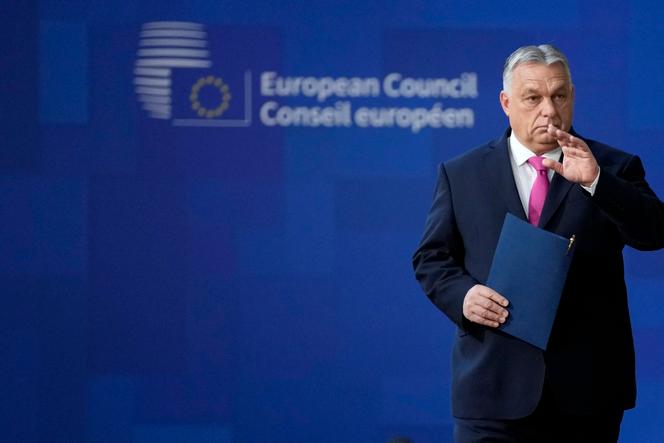


Portugal's Antonio Costa had packed four shirts and was hoping that the meeting of European heads of state and government, which began on Thursday December 14, would not last beyond Sunday. Estonia's Kaja Kallas was ready to talk until Christmas. As for the French president, Emmanuel Macron, he had a commitment on Friday evening in Paris, but could free himself from it. Eventually, against all expectations, at 6.25 pm on Thursday, a tweet from Council President Charles Michel announced that the Europeans had "decided to open accession negotiations with Ukraine". Volodymyr Zelensky immediately reacted: "This is a victory for Ukraine. A victory for the whole of Europe. A victory that motivates, inspires and strengthens." With the Ukrainian counter-offensive at an impasse, the United States at loggerheads over continued aid to Kyiv, and the deadly conflict between Israel and Hamas as a backdrop, the Ukrainian president feared a further setback in Brussels, which Vladimir Putin would not have failed to capitalize on.
As for the European leaders, they wanted to preserve the unity that has been the order of the day since the return of war to the continent. "What we decide, or do not decide, at this meeting will send a clear message to Kyiv, Moscow, Washington and Beijing," warned Petteri Orpo, the Finnish prime minister, as he arrived at the Council meeting. The conflict with Russia has also prompted the 27 member states to open accession negotiations with Moldova and Bosnia-Herzegovina, and to grant candidate status to Georgia.
For weeks, Viktor Orban had been threatening to veto the opening of talks on Ukraine's accession to the European Union (EU), arguing that it was "corrupt," "at war" and that its entry would destabilize the community. When the decision was taken, however, the Hungarian prime minister left the room and let his 26 counterparts go ahead without him. According to a diplomat, this form of constructive abstention is "unheard of". It had nothing to do with the empty-chair policy pursued by Charles de Gaulle's France in the mid-1960s, which actually paralyzed the institutions.
This time, it was Olaf Scholz, Germany's chancellor, who proposed this arrangement, at a moment when discussions were laborious to say the least. "Orban was delighted with the proposal, and accepted straight away," said a European diplomat. The illiberal leader can now return to Budapest with his head held high and tell his fellow citizens, as he immediately declared in a video posted on X on Thursday evening, that "Hungary did not take part in this bad decision." The opening of negotiations, he explained, was "irrational" and "nonsensical."
You have 70% of this article left to read. The rest is for subscribers only.
